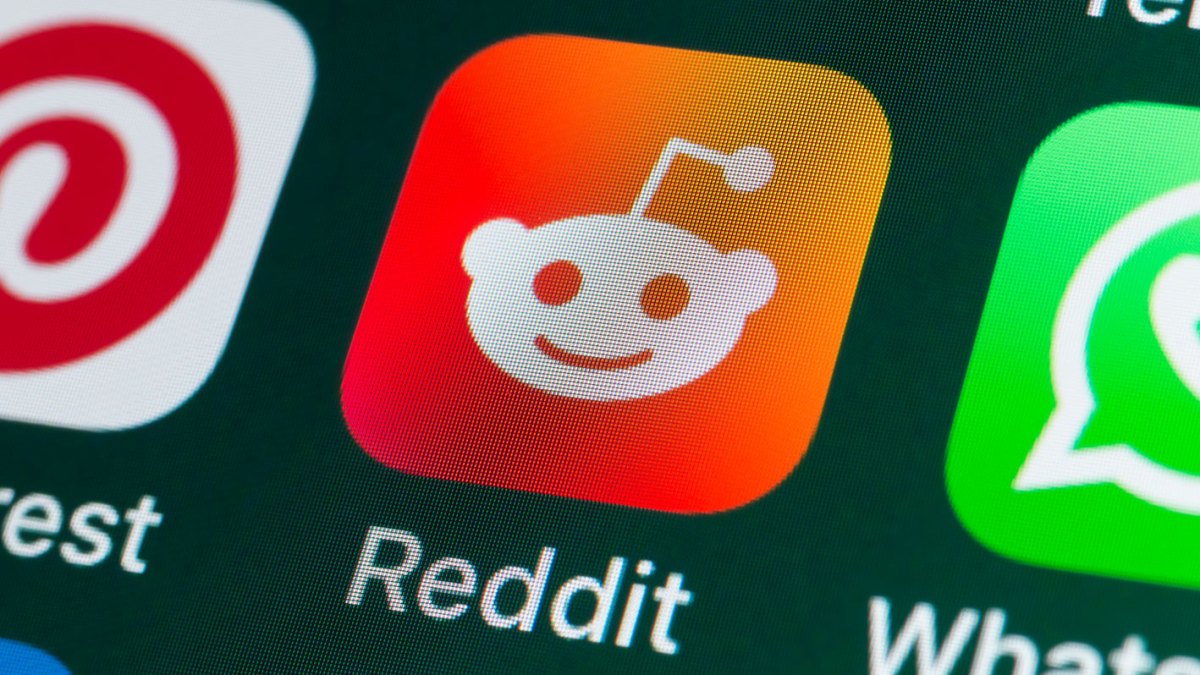Is Gen Z counting on Kamala Harris to turn finances ‘Brat’ green?
More than any other issue, it turns out there’s one issue at the top of young peoples’ minds this election season and like everything else this past summer, it’s “Brat green”—their finances. A recent poll revealed that 70% of young Americans pointed to inflation and the high cost of living as chief concerns this election season, beating out abortion rights (40%), gun control (31%), and every other issue by a landslide. As America prepares for a Harris vs. Trump face-off this fall, Gen Z and millennials are more concerned about the economy (including inflation, cost of living, and housing costs) and their finances than any other issue. I should know. I talk to young people, especially young women, about money and finances every day. In fact, I started my business in response to Donald Trump’s first presidency, because when women have money, they have options. Young women aren’t given much credit for being financially savvy by establishment “experts.” But I’ve seen that our community of 5 million women understands the intersection of politics and finances intimately. With my book and podcast Financial Feminist, I discuss how every feminist issue is a financial one, and vice versa. Women, minorities, LGBTQ+ people, and working parents already understand this because they live it. Gender-affirming care costs money. Abortions cost money. Childcare costs money. Fighting racist housing policy costs money. Politics is money. So, what can we expect out of this year’s “Brat green” election cycle? Here are a few predictions that may impact personal finances. Will a Harris presidency turn young peoples’ wallets Brat green? One cornerstone of Harris’s economic platform is a proposed $50,000 tax incentive for new small businesses, designed to cover the $40,000 average cost of founding a business. This is a substantial increase from the $5,000 incentive that exists today. Harris has also voiced plans to institute a $25,000 down payment assistance program for certain first-time homebuyers, as well as a $6,000 tax credit for new parents. If these policies come to light, they would disproportionately benefit young people starting businesses, and families, and investing in homes for the first time. Vice President Harris’ protection of abortion rights means no loss of income for time off or travel for those seeking care in other states, plus avoiding the expense of an unwanted pregnancy. Her focus on responsible gun ownership means fewer children and teachers die in our schools—and helps combat the economy’s $49 billion annual loss to gun violence. Her spotlight on combating climate change means that future generations can live more safely, with less stress on their wallets. Over the past decade, climate change-related disasters have cost us over $1.3 trillion (yes, that’s with a “T”). If Harris gets elected, can we expect four years of the same? President Trump repeatedly asks, “Are you better off now than you were four years ago?” Although the last four years have been economically tough, it’s important to remember that we navigated a global pandemic, experienced multiple global conflicts and wars, and dealt with international inflation. Despite this, the U.S. experienced lower inflation than dozens of other countries, and it’s currently dropping. As of early September, inflation is at 2.5% which is its lowest since February 2021. What could a Trump 2.0 presidency mean for your wallet? President Trump oversaw the worst net job loss since Hoover, what the Washington Post called “the worst jobs record in modern history.” And the trade wars he’s so proud of (I can just hear his voice saying China! in my head) hurt businesses, consumers’ finances, and the overall economy. Donald Trump’s rise to the presidency in 2016 kicked off several policy changes that disproportionately affected women and young people including cuts to Medicaid and SNAP and changes in access to reproductive healthcare estimated to have cost U.S. women billions much of which we can expect to continue. When it comes to tax policy, Trump’s 2017 Tax Cuts and Jobs Act significantly favored those making $500,000 or more. Less than 25% of the lowest-income households were estimated to receive a modest tax cut of $200, with most receiving significantly less. If Trump returns to the Oval Office, those in the highest income brackets will likely continue to see tax breaks of $60,000 or more, while most low-income households will continue to see little to no benefit. The Act is set to expire in 2025, but if it’s extended, which Trump has promised to do, it’s estimated to cost the U.S. $1.9 trillion over 10 years. With so many possible changes on the horizon, it’s never too soon to take action. Young Americans worried about their financial futures can take four actionable steps to save their wallets—and sanity—this November. Ways young Americans should prep their finances before the electi

More than any other issue, it turns out there’s one issue at the top of young peoples’ minds this election season and like everything else this past summer, it’s “Brat green”—their finances.
A recent poll revealed that 70% of young Americans pointed to inflation and the high cost of living as chief concerns this election season, beating out abortion rights (40%), gun control (31%), and every other issue by a landslide.
As America prepares for a Harris vs. Trump face-off this fall, Gen Z and millennials are more concerned about the economy (including inflation, cost of living, and housing costs) and their finances than any other issue.
I should know. I talk to young people, especially young women, about money and finances every day. In fact, I started my business in response to Donald Trump’s first presidency, because when women have money, they have options.
Young women aren’t given much credit for being financially savvy by establishment “experts.” But I’ve seen that our community of 5 million women understands the intersection of politics and finances intimately.
With my book and podcast Financial Feminist, I discuss how every feminist issue is a financial one, and vice versa. Women, minorities, LGBTQ+ people, and working parents already understand this because they live it. Gender-affirming care costs money. Abortions cost money. Childcare costs money. Fighting racist housing policy costs money.
Politics is money.
So, what can we expect out of this year’s “Brat green” election cycle? Here are a few predictions that may impact personal finances.
Will a Harris presidency turn young peoples’ wallets Brat green?
One cornerstone of Harris’s economic platform is a proposed $50,000 tax incentive for new small businesses, designed to cover the $40,000 average cost of founding a business. This is a substantial increase from the $5,000 incentive that exists today.
Harris has also voiced plans to institute a $25,000 down payment assistance program for certain first-time homebuyers, as well as a $6,000 tax credit for new parents. If these policies come to light, they would disproportionately benefit young people starting businesses, and families, and investing in homes for the first time.
Vice President Harris’ protection of abortion rights means no loss of income for time off or travel for those seeking care in other states, plus avoiding the expense of an unwanted pregnancy.
Her focus on responsible gun ownership means fewer children and teachers die in our schools—and helps combat the economy’s $49 billion annual loss to gun violence.
Her spotlight on combating climate change means that future generations can live more safely, with less stress on their wallets. Over the past decade, climate change-related disasters have cost us over $1.3 trillion (yes, that’s with a “T”).
If Harris gets elected, can we expect four years of the same?
President Trump repeatedly asks, “Are you better off now than you were four years ago?” Although the last four years have been economically tough, it’s important to remember that we navigated a global pandemic, experienced multiple global conflicts and wars, and dealt with international inflation.
Despite this, the U.S. experienced lower inflation than dozens of other countries, and it’s currently dropping. As of early September, inflation is at 2.5% which is its lowest since February 2021.
What could a Trump 2.0 presidency mean for your wallet?
President Trump oversaw the worst net job loss since Hoover, what the Washington Post called “the worst jobs record in modern history.” And the trade wars he’s so proud of (I can just hear his voice saying China! in my head) hurt businesses, consumers’ finances, and the overall economy.
Donald Trump’s rise to the presidency in 2016 kicked off several policy changes that disproportionately affected women and young people including cuts to Medicaid and SNAP and changes in access to reproductive healthcare estimated to have cost U.S. women billions much of which we can expect to continue.
When it comes to tax policy, Trump’s 2017 Tax Cuts and Jobs Act significantly favored those making $500,000 or more. Less than 25% of the lowest-income households were estimated to receive a modest tax cut of $200, with most receiving significantly less. If Trump returns to the Oval Office, those in the highest income brackets will likely continue to see tax breaks of $60,000 or more, while most low-income households will continue to see little to no benefit. The Act is set to expire in 2025, but if it’s extended, which Trump has promised to do, it’s estimated to cost the U.S. $1.9 trillion over 10 years.
With so many possible changes on the horizon, it’s never too soon to take action. Young Americans worried about their financial futures can take four actionable steps to save their wallets—and sanity—this November.
Ways young Americans should prep their finances before the election
Plan for a potential end to student loan forgiveness by coming up with a payment plan that fits your budget. While we may vote for student loan forgiveness, we cannot count on it, so don’t make decisions based on this election’s outcome (especially considering how little support Republicans offer for this issue). Make a plan for paying off your debt. Get honest with yourself about your numbers and, if you can, contribute extra money to the principal.
Build a “reproductive piggy bank” or explore options with your benefits provider. This could include funds for emergency contraception, travel across state lines to seek reproductive healthcare (such as egg freezing or abortions), and more. If you have benefits through your workplace, check and see if they offer any of these benefits.
Prepare for market volatility. No matter who wins, elections affect the stock market. One study found that stock market returns exhibit more than 20% higher volatility around election season. This isn’t cause for alarm though. Experts (including me) recommend investing for the long haul, so stay the course and invest in well-diversified investments like an index fund.
Vote for local candidates who support projects and policies that impact you (and your pocketbook) directly. It’s not just about the presidential election, it’s about who you elect for your school board, city council, sheriff’s office, and more.






















